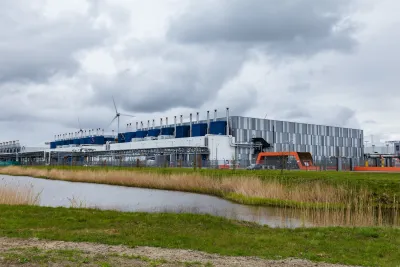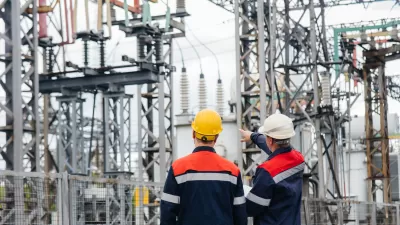USC researchers are reimagining how AI systems are trained and powered — through smarter algorithms, innovative hardware, and brain-inspired designs — to dramatically reduce computing’s energy footprint.

As artificial intelligence (AI) advances, so too does the need for vast computing power—raising urgent questions about energy consumption. At USC’s School of Advanced Computing and Viterbi School of Engineering, researchers are exploring ways to make computing for AI more energy-efficient. Strategies include trimming and simplifying neural networks, transferring learning from pre-trained models, and reducing the bit-depth of data used in machine learning processes. These methods can dramatically shorten training times while lowering hardware requirements and computational costs, according to Professor Massoud Pedram.
Hardware innovation is another key frontier. While GPUs dominate AI processing, their high cost and energy demands have led researchers like Professor Murali Annavaram to suggest pairing them with CPUs to improve efficiency. Other labs are customizing chips to better match the needs of specific AI tasks, optimizing how data is processed and stored. A more radical approach comes from Professor Peter Beerel, whose lab is pioneering superconducting electronics using niobium to eliminate resistance and enable ultra-low-power computing, supported by new algorithms and design automation tools.
Looking to the future, USC researchers are also pushing the boundaries with neuromorphic computing — systems modeled on the human brain. Professors like Joshua Yang and Barath Raghavan are developing technologies like analog in-memory chips and “information batteries” that store energy as pre-computed data. These innovations promise to dramatically reduce energy use while maintaining or even enhancing performance, signaling a transformative shift in how computing systems are designed to meet the growing demands of AI, edge devices, and real-world applications.
FULL STORY: How Can Computing for AI and Other Demands Be More Energy Efficient?

Planetizen Federal Action Tracker
A weekly monitor of how Trump’s orders and actions are impacting planners and planning in America.

Canada vs. Kamala: Whose Liberal Housing Platform Comes Out on Top?
As Canada votes for a new Prime Minister, what can America learn from the leading liberal candidate of its neighbor to the north?

USGS Water Science Centers Targeted for Closure
If their work is suspended, states could lose a valuable resource for monitoring, understanding, and managing water resources.

House Moves to Rescind California’s Emissions Standards
The state has been allowed to set its own emissions goals, including a mandate to transition to electric or zero-emissions vehicles by 2035.

Portland Proposal Would Suspend Development Fees to Spur Housing Construction
Oregon Gov. Tina Kotek and Portland Mayor Keith Wilson announced their policy plan Thursday, with the goal to jumpstart housing construction.

Honolulu Community College Celebrates Culture and Sustainability
Honolulu Community College brought together more than 320 students, staff, and community members for a day of Hawaiian cultural activities, music, and sustainability-focused learning at its annual Hoʻolauleʻa celebration.
Urban Design for Planners 1: Software Tools
This six-course series explores essential urban design concepts using open source software and equips planners with the tools they need to participate fully in the urban design process.
Planning for Universal Design
Learn the tools for implementing Universal Design in planning regulations.
New York City School Construction Authority
Village of Glen Ellyn
Central Transportation Planning Staff/Boston Region MPO
Chaddick Institute at DePaul University
Institute for Housing and Urban Development Studies (IHS)
City of Grandview
Regional Transportation Commission of Southern Nevada
Toledo-Lucas County Plan Commissions





























